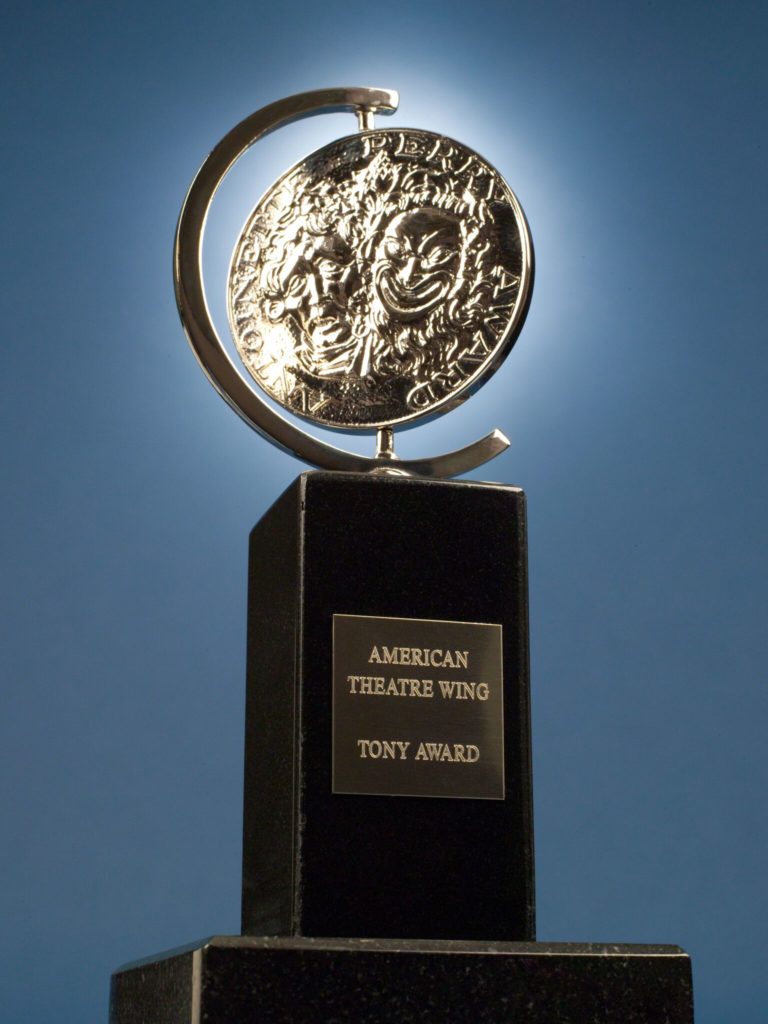
“The past is a work of art, free of irrelevancies and loose ends.”
Max Beerbohm, Lytton Strachey
Terry Teachout on the arts in New York City

“The past is a work of art, free of irrelevancies and loose ends.”
Max Beerbohm, Lytton Strachey

The thirty-third episode of Three on the Aisle, the twice-monthly podcast in which Peter Marks, Elisabeth Vincentelli, and I talk about theater in America, is now available on line for listening or downloading.
Here’s an excerpt from American Theatre’s “official” summary of the proceedings:
With the Tony Awards this coming weekend, the critics take a look at what should win rather than what they think will win (and in their book, Off-Broadway and regional theatre count). The critics give their own awards for best performance, supporting performance, ensemble, direction, revival, and new show.
They then go around the table to talk about The Adventures of Augie March at Chicago’s Court Theatre, Ibsen’s Rosmersholm on London’s West End, and Kate Hamill’s Little Women in New York.
To listen to or download this episode, read more about it, or subscribe to Three on the Aisle, go here.
In case you’ve missed any previous episodes, you’ll find them all here.
D-Day Plus 20 Years: Eisenhower Returns to Normandy, originally telecast on CBS on June 6, 1964. The host is Walter Cronkite:
(This is the latest in a series of arts- and history-related videos that appear in this space each Monday, Wednesday, and Friday)
My Wall Street Journal “Sightings” column returns this week after a brief hiatus with some thoughts about this year’s Tony Awards. Here’s an excerpt.
* * *

This year’s Tony Awards will be presented on Sunday. As usual, the ceremony will be televised by CBS, and also as usual, relatively few people will be watching. Last year’s telecast drew 6.3 million viewers, less than a quarter of the number who watched the Oscars. Even in 2016, the year of “Hamilton,” only 8.7 million people tuned in the Tonys.
Not that anyone should be shocked by these figures. Broadway might not be just for the rich, but it’s not for the poor, either (a ticket to “Tootsie” costs between $99 and $169). Yes, attendance went up 9.5% during the 2018-19 season, but even in a banner year, only 50,491 people can see a show on any given evening, that being the total number of seats in Broadway’s 41 theaters. A ticket, in other words, is a low-grade luxury commodity, and most of the people who buy them—63%, according to the Broadway League—are tourists who want to take in a show, far more often than not a musical, in between visiting the Statue of Liberty and shopping at Saks Fifth Avenue.
And what does all this have to do with this year’s Tony nominations? In theory, the Tonys reward excellence on Broadway. All things being equal, Tony voters prefer to do just that, which explains why Elaine May is generally regarded as a shoo-in to take home a Tony for her unforgettable performance as a grandmother with dementia in Kenneth Lonergan’s “The Waverly Gallery.” But other factors are inevitably involved as well, starting with the fact that it’s people in the theater business who vote on the winners. The operative word is “business”: Flops rarely win Tonys, and they scarcely ever knock down any of the top-tier awards.
In addition, theatrical excellence is necessarily a matter of opinion. The way that individual Tony voters define “excellence” is indicative of what kinds of shows they expect to do well on Broadway in the future—and what kinds they want to do well….
* * *
Read the whole thing here.Patti LuPone accepts a Tony award for her performance as Mama Rose in the 2008 Broadway revival of Gypsy:

“To have good reason for not laughing is one of the surest aids.”
Max Beerbohm, “Laughter” (courtesy of Anecdotal Evidence)
Amos Milburn sings and plays “Bad, Bad Whiskey” in Rhythm and Blues Revue, directed by Joseph Kohn and Leonard Reed and released in 1955:
(This is the latest in a series of arts- and history-related videos that appear in this space each Monday, Wednesday, and Friday)

“Drunkenness, for example, is temporary suicide: the happiness that it brings is merely negative, a momentary cessation of unhappiness.”
Bertrand Russell, The Conquest of Happiness
An ArtsJournal Blog